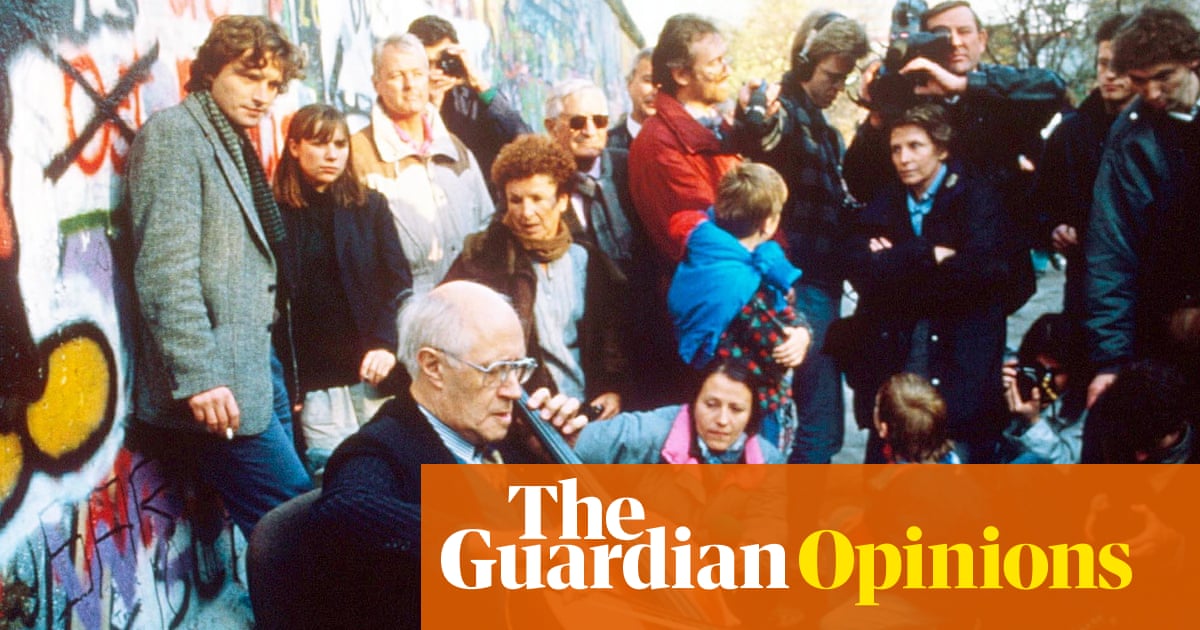
"This was, though, a concert taking place slap-bang in the middle of the cold war. The Cuban missile crisis had taken place less than three years earlier. The Berlin Wall was still fairly new. The Vietnam war was deepening. That summer I had read The Spy Who Came in from the Cold. The movie version of Le Carre's novel, with Richard Burton, was due out by the year's end."
"So a concert visit by a Soviet orchestra, opening their programme with a piece by a notorious Soviet cultural apparatchik, and featuring a superstar cellist whose oppositional support for human rights was at that stage not widely known, certainly not by me, but whose biography casually mentioned his award of a Stalin prize, was a freighted event. It could have been depicted as a visit from the enemy, and certainly as a political act as well as an artistic one."
A childhood memory in October 1965 recalls attending Rostropovich's performance of Dvorak's cello concerto with the Moscow Philharmonic at Manchester's Free Trade Hall. The orchestra opened with a Tikhon Khrennikov symphony and closed with Brahms. Rostropovich's noble playing made a profound impression. The visit occurred amid Cold War tensions — the Cuban Missile Crisis, the Berlin Wall, and the Vietnam war — and intersected with cultural politics. A Soviet programme choice and Rostropovich's complex biography, including a Stalin prize, made the visit politically freighted. Authorities and audiences weighed visa, defection, and soft-power implications before and during the tour.
Read at www.theguardian.com
Unable to calculate read time
Collection
[
|
...
]